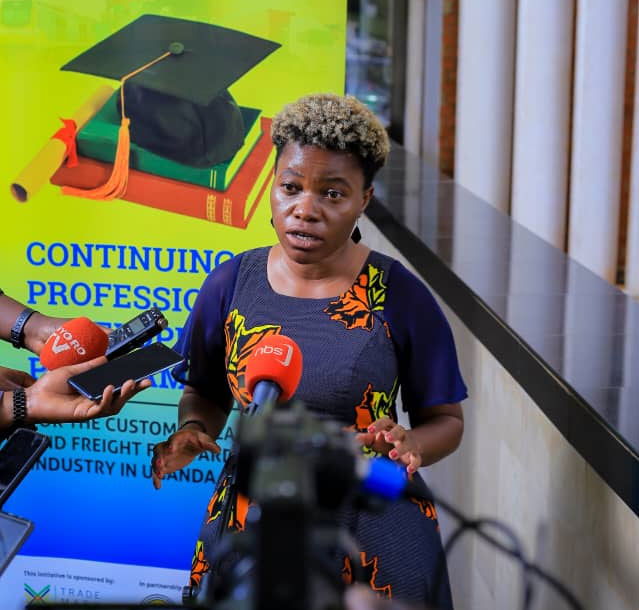
FEAFFA Partners with Trademark East Africa for the EACFFPC training’s Second Phase
Kampala, Uganda | THE INDEPENDENT | With an eye on reducing cost of trade in the region, stake holders in the logistics sector have stepped up specialized training for key personnel in Uganda.
A programme to offer training to customs agents and freight forwarders in Uganda that is in tune with changing technologies and logistical needs, and aims to make the country a regional logistics and distribution hub was yesterday launched at Sheraton Hotel in Kampala. The training, officials said, will enable customs agents and freight forwarders to provide competitive and high-quality end to end services.
With support from Trademark East Africa (TMEA) and in partnership with the Uganda Revenue Authority (URA), the Federation of East African Freight Forwarders Associations (FEAFFA) Wednesday rolled out the Continuing Professional Development (CPD) program for customs agents and freight forwarders in Uganda on a pilot basis.
The programme implemented by FEAFFA across East Africa, will offer timely training that is in tune with changing technologies and logistical needs, thus enabling customs agents and freight forwarders to provide competitive and high-quality end to end services.
At the programme launch, TMEA was represented by Damali Ssali Ag Country Director, The East African Community Secretariat and FEAFFA was represented by Mr. John Mathenge.
“The new skills that will be acquired through the CPD program will be key in addressing the inefficiencies in logistics service delivery and therefore significantly contribute to reducing the high cost of transport in East Africa,” said Damali Ssali.
Mathenge revealed that the CPD program is expected to address the large skills gap in the EACs logistics sector that have resulted into high costs of transport in the region and will run under the EAC Logistics Sector Skills Enhancement programme sponsored by TMEA. FEAFFA has already developed the CPD policy framework and implementation guidelines and tools to guide EAC countries in rolling out the program.
“The CPD program is a core of training interventions by FEAFFA that has the potential to unilaterally uplift the region’s potential for growth in the trade sector. Currently the East African region is characterized by high logistics costs and low levels of service provision. Either because freight forwarders are unaware of new regulations, or a custom agent is not conversant with multiple country regimes. It is against this backdrop that we have partnered with industry stakeholders to establish a CPD program with a possibility of becoming a pre-condition for licensing Clearing Agents in the region,” he explained.
Uganda Revenue Authority in a statement said; “URA will continue to partner with FEAFFA and other industry stakeholders to support the capacity building of practitioners within the logistics industry in Uganda and the larger EAC region”.
In preparation for the start of the pilot, several preparatory activities were conducted including a Training Needs Assessment (TNA), by the National Curriculum Implementation Committee (NCIC) a joint organ of the freight forwarding industry and Uganda Revenue Authority (URA).’’ He added.
After the implementation of the program, industry practitioners will be expected to have a minimum number of CPD points per year, which will form part of the requirements for the renewal of their operating licenses.
The CPD program will keep practitioners abreast with emerging trends in the industry in three major components: technical competencies, emerging issues and leadership and personal development.
Since 2006, FEAFFA has been running the East African Customs and Freight Forwarding Practicing Certificate (EACFFPC), a six-month joint regional training program of the East African Revenue Authorities, National associations of the Freight Forwarding industry, the EAC Directorate of Customs and FEAFFA. It aims at equipping practicing or prospective custom agents and freight forwarders with requisite skills and competencies in customs and freight forwarding. Its implementation started in 2006 and over 6500 have since graduated.
 The Independent Uganda: You get the Truth we Pay the Price
The Independent Uganda: You get the Truth we Pay the Price



